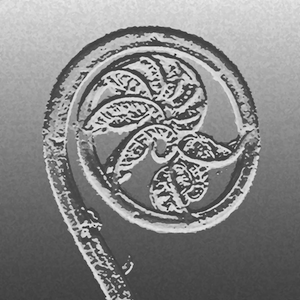
Asplenium phyllitidis D.Don.
Family
Aspleniaceae
Nomenclature
Asplenium phyllitidis D.Don, Prodr. Fl. Nepal.: 7. 1825; Holttum, Rev. Fl. Malaya ed. 1, 2: 420. 1955 [‘1954’]; Seidenf., Nat. Hist. Bull. Siam Soc. 19: 86. 1958; Tagawa & K.Iwats., SouthE. Asian Stud. 5: 84. 1967; Holttum, Gard. Bull. Singapore 27: 152. 1974; K.Iwats., Acta Phytotax. Geobot. 29: 23. 1978; Tagawa & K.Iwats., Fl. Thailand 3: 268, f. 21.3,4,5. 1985; Boonkerd & Pollawatn, Pterid. Thailand: 112, 144. 2000. – Asplenium nidus var. phyllitidis (D.Don) Alderw., Malayan Ferns Fern Allies.: 282. 1917; Tardieu & C.Chr., Fl. Indo-Chine 7(2): 220. 1940. – Thamnopteris nidus var. phyllitidis (D.Don) Bedd., Handb. Ferns Brit. India: 139. 1883.
Two subspecies are recognised in Thailand
Asplenium phyllitidis D.Don subsp. phyllitidis
And
Asplenium phyllitidis D.Don. subsp. malesicum Holttum, Gard. Bull. Singapore 27: 153. 1974; Tagawa & K.Iwats., Fl. Thailand 3: 268. 1985; Boonkerd & Pollawatn, Pterid. Thailand: 144. 2000.
Asplenium oblanceolatum Copel., Philipp. J. Sci. Bot. 9: 229. 1914.
Description
Epiphytic or lithophytic . Similar to Asplenium nidus L., differing from it in: rhizome scales brown, broader; frond up to 80 by 7 cm (in exceptional cases up to 10 cm broad); midrib raised below; sori usually reaching more than half-way to margin , often occupying 3/4 of the length of veins.
The two subspecies of Asplenium phyllitidis in Thailand can be distinguished thus:
1. Scales usually less than 7 mm long. Sori on almost all veins, including both branches of a vein which forks near costa; indusia narrower; spores smooth or reticulate . Plants of Northern region…a. subsp. phyllitidis
1. Scales up to 12 mm or more long; sori usually on one branch of each vein; indusia broader; spores echinate ; plants from Central, South-eastern and Peninsular region…b. subsp. malesicum
Distribution in Thailand
For Asplenium phyllitidis subsp. phyllitidis: NORTHERN: Lampang, Tak.
For Asplenium phyllitidis subsp. malesicum: SOUTH-WESTERN: Phetchaburi, Prachuap Khiri Khan; CENTRAL: Nakhon Nayok, Bangkok; SOUTH-EASTERN: Chanthaburi, Trat; PENINSULAR: Surat Thani, Nakhon Si Thammarat, Trang, Satun.
Distribution in Laos
Khammouane.
Distribution in Cambodia
For Asplenium phyllitidis subsp. malesicum: Koh Kong.
Wider Distribution
For Asplenium phyllitidis subsp. phyllitidis: Himalaya.
For Asplenium phyllitidis subsp. malesicum: Peninsular Malaysia and Sumatra to New Guinea.
Ecology
On mossy tree-trunks or on muddy rocks in dense evergreen forests at medium altitudes.
Similar species
Proposed IUCN Conservation Assessment
Least Concern (LC). Both subspecies of this species are widespread and not under any known threats.
Voucher specimens - Laos
Delacour s.n., Khammouane, Nape (P).
Voucher specimens - Cambodia
For Asplenium phyllitidis subsp. malesicum: Viboth R3-74, Koh Kong, Thma Baing (P).
Site hosted by the Royal Botanic Garden Edinburgh. Content managed by Stuart Lindsay, Gardens by the Bay, Singapore and David Middleton, Singapore Botanic Gardens. Last updated 24 January 2012